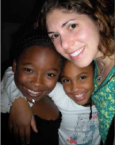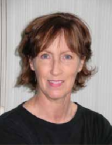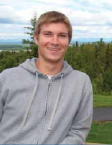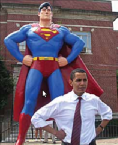|
|
Will President Elect Obama Offer Real Change in Wartime?In his victory speech on November 4, 2008, President-elect Barack Obama appealed to our best selves, reminding us of an America acting from a sense of moral principle, an America that seeks to redress injustice at home and tyranny abroad. He called us to face our current crises from a shared sense of moral purpose. But I wonder whether he intends to address a crisis of massive proportion that continues in the current military interventions in Iraq and Afghanistan. The crisis centers on civilian suffering in war. From a global perspective the evidence of systematic devastation of civilian noncombatants is compelling. Studies show that war's weakest participants are its greatest victims. In fact, civilian noncombatants die in far greater... |
 |
ICAR Hosts McAfee on DemocracyThis year ICAR has another philosopher and democratic theorist in its midst, Noëlle McAfee, associate research professor of philosophy and conflict analysis. Noëlle joins us after having spent two years in George Mason's philosophy department, and prior to that several years on the philosophy faculty at the University of Massachusetts Lowell. Noëlle is spending the 2008-2009 academic year with ICAR thanks to funding from the Charles F. Kettering Foundation to work on a book on the meaning of democratic politics and to help oversee the Kettering Foundation's research on media and democracy. She is also the associate editor of the foundation's journal of political thought, the Kettering Review. In the spring she will be teaching a graduate seminar on democratic theory and post-conflict democratization, drawing on her penchant for grounding theory in real-world problems and... |
|
|
Pursuing and Publishing a Resolution to the Caucasus War Shortly after the August war in the Caucasus, I spoke with Georgian and South Ossetian friends and colleagues there. These civil society based peace builders were eager to talk with each other, but the tense ceasefire left no possibility for crossing the ceasefire line. As we talked, it became clear that an internationally facilitated meeting would be useful. While building towards a meeting at which Georgians and South Ossetians can sit together to assess the prospects for civil society contributions to peace building there, a Georgian, an Ossetian, and I wrote an article explaining why such meetings could be useful. Writing together was a conflict resolution process. We practiced careful attention to each other's concerns and... |
 |
ICAR Mixes Masters with Social Work GMU Graduate Students Focus on ICAR-MSW DegreesThe iconic and stereotypical image of the social worker as "little old ladies in tennis shoes" that flourished in the early-to-mid-20th century has long been relegated to the dust bin of history. Never true, the social worker has always been on the front lines of community development. Day or night, social workers can be found in the most devastated neighborhoods conferring with families, advising troubled youth in recreational centers, and in general, using nascent conflict resolution skills to knit the delicate fabric of a community. Wallace Warfield: A relatively new faculty member in 1992, it came quickly to my attention that ICAR M.S. students in particular wanted a more embedded field experience as part of their... |
Upcoming ICAR Community EventsDecember 2: Makram Ouaiss Dissertation Defense: December 2: Joan Orgon Coolidge Dissertation Defense: December 3: Alex Scheinman Dissertation Defense: |
|
 |
Launch at ICAR of Handbook of Conflict Analysis and ResolutionAs part of its nearly 30-year effort to institutionalize conflict analysis and resolution as a multidisciplinary field for research, theory building, teaching, practice and outreach in the United States and abroad, the Institute for Conflict Analysis and Resolution (ICAR) launched, on November 11th, 2008, the Handbook of Conflict Analysis and Resolution (Routledge, 2009). The volume is coedited by Dennis Sandole of ICAR, Ingrid Sandole-Staroste of GMU's Department of Sociology and Anthropology and Woman's Studies Program, and Sean Byrne and Jessica Senehi of Canada's first and only Ph.D. Program in Peace and Conflict Studies at the University of Manitoba, in Winnipeg. The genesis of the volume was a chat... |
Recent ICAR Articles, Op-Eds and Letters to the EditorAfter the Shooting Stops |
|
|
|
ICAR Student OpinionPresident-elect Barack Obama ran victoriously on a platform of "change". Now that he's won with a clear majority, it's time the American people internalized that notion in order to transition from a polarized nation to a united one, with Obama at the helm. This race gave us time to firmly wedge ourselves—if we hadn't already—into political parties. Our most difficult obstacle now will be separating out these political party identifications from the stereotypes they evoke. We label Republicans as uneducated NASCAR fans with a beer in their hands and a rifle in their pick-up trucks and we judge Democrats to be elitist, granola-loving hippies looking for a government handout. For many of us, the connection... |
 |
Patricia MauldenFor Dr. Patricia Maulden, being an ICAR alum has advantages. First, as an Assistant Professor of the undergraduate program, Patricia knows how to relate to students' trials and tribulations as practitioners in an emerging field. A second advantage is the opportunity to advise students on job-hunting in a competitive marketplace. But the most exciting advantage of one who journeyed through ICAR are the bragging rights about all the new ICAR graduates coming up through the ranks. As the conflict field grows, so too does the undergraduate program and Patricia cites the positive contributions from ICAR faculty and undergraduate staff as the reasons for the program's success. Additionally, Patricia directs... |
 |
Abraham HoubenAbraham (Bram) Houben, an ICAR M.S. student, obtained his Bachelors at Laurea University of Applied Science in Finland. The University is centered in the competitive region of the Helsinki Metropolitan Area and strives to strengthen international networks outside Northern Europe. Since the school is heavily focused on international cooperation, it is no surprise that Bram chose to continue his studies in conflict analysis and resolution. Studying in Finland, Holland, China, and Chile expanded Bram's perspective of conflict and he decided to increase his knowledge by heading to the U.S. ICAR filled a void; Bram says that the institution "offered a depth of courses and support that I didn't find anywhere else." At ICAR, Bram can... |
 |
Can Barack Obama Stop the Status Quo?Senator Barack Obama, who campaigned on a willingness to talk to foes of the United States, has decisively won the presidential election. Will conflict resolution be a guiding principle in U.S. foreign policy under President Obama? Perhaps the exuberance of optimism may have overlooked the United State's power structure in international politics. Regardless of his rhetoric on change, President Obama will be inheriting some core elements of President Bush's foreign policy. The top unchanged policy will be the U.S. military doctrine adopted since the end of the Cold War. The doctrine is set to maintain U.S.'s military superiority by keeping a significant gap between the U.S.'s military and its potential... |



